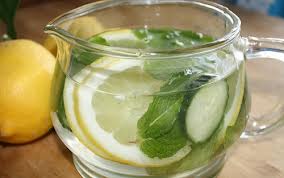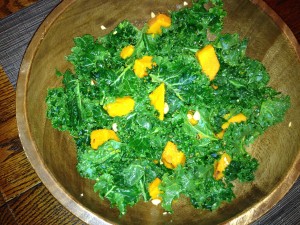 Detoxification diets and programs have certainly become popular in recent years, with people reporting health benefits of improved energy, better sleep, and weight loss.
Detoxification diets and programs have certainly become popular in recent years, with people reporting health benefits of improved energy, better sleep, and weight loss.
The word detoxification in conventional circles implies the removal of exogenous substances (such as alcohol and drugs) from the body. In the alternative and complementary health care field, as well as in mainstream media, detoxification has taken on a whole new meaning!
Detox diets and programs today share the common purpose of reducing intake of toxins and at the same time increasing elimination of toxins to restore health and vitality.
Although detox diets greatly vary in type and length, most detox diets focus on eliminating processed and fried foods, sugar, excess caffeine; addressing potential food intolerances like gluten and dairy; reducing environmental toxins such as pesticides and herbicides from non-organic produce and chemicals from cleaning supplies and skin products, and supporting major organs of elimination such as the colon, the liver, and the skin.
As you can imagine, conducting a double blind placebo controlled randomized trial (gold standard study in the science community) on the efficacy of detoxification diets is no easy task. Mainly because there are so many TYPES of detoxification programs and many variables to consider (i.e. how toxic is the person to begin with, length of the program, etc.)
A recent article in the Feb/March 2013 edition of Townsend Letter reviewed three pilot observational studies to examine the symptoms and side effects of detox diets. These pilot observational studies simply compile data in the form of questionnaires, surveys, and phone calls from people that have completed detox programs. In other words, they ask people to recall their experiences. Certainly not the gold standard of research since people are relying on their memories, but it is a place to start!
Nonetheless, I found the pilot studies intriguing, particularly the motivations for people to do the detox programs in the first place and also the symptoms reported during and after the detox program. The larger pilot study surveyed 390 students at the National College of Natural Medicine. This is an interesting group as they have to complete one detox program as part of their training! The types of detox programs varied greatly (juicing, fasting, dietary changes only, supplement support) and most were shorter in length, up to 7 days.
According to the study, the most frequent motivations to complete a detox program were:
- Elimination of toxins
- Improve energy
- Enhance immunity
- Lose weight
- Decrease pain
Detox diets had the greatest impact on energy, with 51% of people reporting an increase in energy and 58% a decrease in weight during the detox program. After completion of detox, 70% of people reported increased energy and 60% reported better moods.¹
I was surprised that enhancing immunity rated third as a motivation to complete a detoxification program, as that is not generally a motivation that I hear very often when I ask my detox participants to state their reasons for doing my Cleanse and Revive program. However, these are students that were surveyed…and they do tend to get sick more often while at school!
The motivations that I hear most often from my Cleanse and Revive participants are to get healthy, learn better eating habits, and lose weight. Energy rates high as well! As far as results of the Cleanse and Revive program, I find that my participants report most often increased energy, body fat loss, better mood (less stressed), and improved sleep. What are your biggest motivations to do a detoxification program? And what specific results are you seeking? I am curious, let me know!
And be sure to join my next Cleanse and Revive program at Pilates Heights in San Francisco starting April 6th if you are in the San Francisco Bay area. Register by March 31st to get the early bird rate!
1. Axtell, Sarah, Birr, Alicia, et al, Detoxification Diets: Three Pilot Studies, Townsend Letter Feb/March 2013, pages 97-102.

